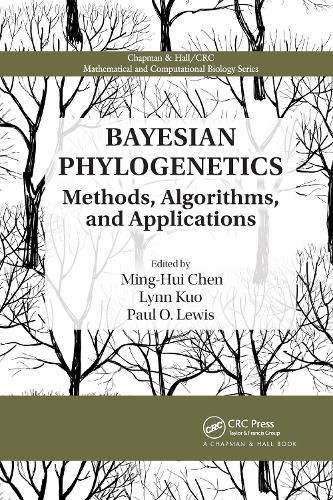Readings Newsletter
Become a Readings Member to make your shopping experience even easier.
Sign in or sign up for free!
You’re not far away from qualifying for FREE standard shipping within Australia
You’ve qualified for FREE standard shipping within Australia
The cart is loading…






Offering a rich diversity of models, Bayesian phylogenetics allows evolutionary biologists, systematists, ecologists, and epidemiologists to obtain answers to very detailed phylogenetic questions. Suitable for graduate-level researchers in statistics and biology, Bayesian Phylogenetics: Methods, Algorithms, and Applications presents a snapshot of current trends in Bayesian phylogenetic research.
Encouraging interdisciplinary research, this book introduces state-of-the-art phylogenetics to the Bayesian statistical community and, likewise, presents state-of-the-art Bayesian statistics to the phylogenetics community. The book emphasizes model selection, reflecting recent interest in accurately estimating marginal likelihoods. It also discusses new approaches to improve mixing in Bayesian phylogenetic analyses in which the tree topology varies. In addition, the book covers divergence time estimation, biologically realistic models, and the burgeoning interface between phylogenetics and population genetics.
$9.00 standard shipping within Australia
FREE standard shipping within Australia for orders over $100.00
Express & International shipping calculated at checkout
Offering a rich diversity of models, Bayesian phylogenetics allows evolutionary biologists, systematists, ecologists, and epidemiologists to obtain answers to very detailed phylogenetic questions. Suitable for graduate-level researchers in statistics and biology, Bayesian Phylogenetics: Methods, Algorithms, and Applications presents a snapshot of current trends in Bayesian phylogenetic research.
Encouraging interdisciplinary research, this book introduces state-of-the-art phylogenetics to the Bayesian statistical community and, likewise, presents state-of-the-art Bayesian statistics to the phylogenetics community. The book emphasizes model selection, reflecting recent interest in accurately estimating marginal likelihoods. It also discusses new approaches to improve mixing in Bayesian phylogenetic analyses in which the tree topology varies. In addition, the book covers divergence time estimation, biologically realistic models, and the burgeoning interface between phylogenetics and population genetics.